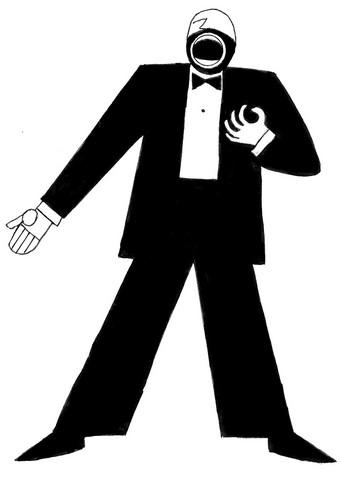I'm really doing stuff, honest!
Choralation has not been on hiatus, I’ve just been busy with various rehearsals and lectures.
Tomorrow is a performance of Haydn’s The Seasons with the University Chamber (not really Chamber) Choir. I’ve got some nice duets and solos to sing and I’ve enjoyed working on the piece. Much of it sounds like outtakes from Magic Flute or Abduction from the Seraglio. Haydn is quite creative in his setting of the rather clunky text. We’re doing it in German, but the English text is even worse. Of course, I’ve developed a nasty head cold and it should be fun negotiating my way through that. That’s where experience and technique will hopefully help me along.
Last week I was lucky to see quite a unique concert by the Neue Vocalsolisten Stuttgart. The group specializes in contemporary music with extended vocal techniques (singing in various non-traditional ways). The centerpiece of their program was Luciano Berio’s A-Ronne. It is completely unlike any other piece I’ve ever heard before. I find it difficult to describe exactly what the piece is, but it is essentially a music theatre piece based on repetitions and variations of a single multi-lingual text. Some of it is sung, much of it is spoken (with one wild dance break in the middle). To me, it gave the impression of watching late-night television and flipping from station to station. You get little snippets of different events and situations (including a tennis match, a cocktail party and what sounded like a send-up of grand opera). Throughout this the text remains the same, so the meaning is conveyed by the inflection and sound of the words and the theatricality of the performers. It really makes one think about how meaning is conveyed and how language is really just a collection of sounds with different inflection. We are having a seminar on Berio next term, and I will enjoy digging deeper into the piece.
I like to share my own personal connection with Berio, which is that I was part of the American premiere of Berio’s last piece Stanze with the Philadelphia Singers, Philly Orchestra and Christoph Eschenbach. After my initial trepidation with the piece, I really came to like it and found it somewhat moving in that it is a farewell piece of sorts. (To me, it suggested the Mahler Ruckertlieder or Das Lied von der Erde, and Berio references Mahler throughout the piece). I’m not sure I’ll ever hear Stanze or A-Ronne again, but I am fortunate to have experienced both.
This past weekend was also quite busy, with a performance of Handel’s Alexander’s Feast with the Yorkshire Bach Choir (a nice piece that should be done more, but is kind of expensive to perform, because of the extra instrumental soloists) and my first services as a deputy (substitute singer) at York Minster. It was a sight-reading extravaganza, but I managed to get through it relatively unscathed.
It also snowed yesterday! None of it stuck, but it’s always nice to see snow. Makes me miss those cold New York State winters!

